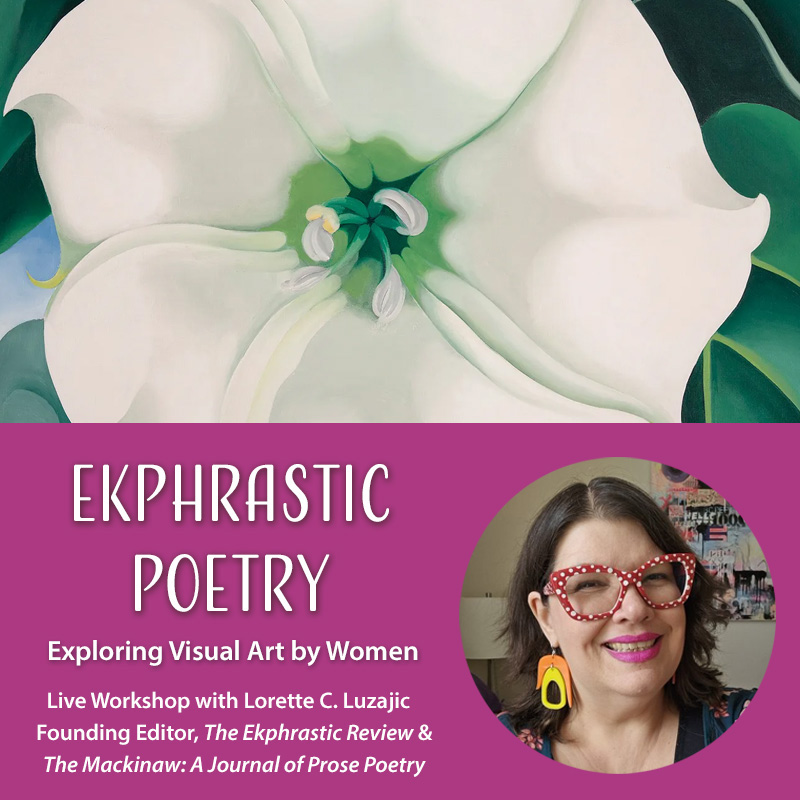I have had the pleasure of reading some of WOW’s flash fiction contest entries, and I’m continually impressed that so many of you share your stories – a.k.a. bare your souls – to us each contest.
Having now read hundreds of flash fiction stories – from this contest, from my students, from other flash-fiction publications – I have seen what works well in flash fiction, and what does not.
I want to share two tips with you and hope that you will use them to revise your flash fiction and submit it to WOW’s next flash fiction contest (see here for contest deadlines and requirements).
1. Show, Don’t Tell
That’s good advice for all types of creative writing. In flash fiction, however, it’s common to think you have to summarize a lot of information so you can condense the story into the limited word count, which results in telling rather than showing.
For example, writing “I was elated” tells us that the character is excited, but how would you show that?
“I jumped up and down with my fist pumping the air, yelling ‘Yes! Yes! Yes!’” shows us that the character is excited and also provides more about the character’s personality.
Showing, rather than telling, strengthens your writing, but it can also increase your word count, which leads me to my second suggestion, which can help reduce the word count:
2. Avoid Adverbs, Clichés, and Other Unnecessary Words
It’s tempting to default to commonly used phrases or to write the way we speak. But writing is a craft, which means we need to chisel out all of the triteness of language from our stories.
Let’s deconstruct this sentence: “I threw all caution to the wind when I took the plunge over the bridge and fell quickly into the bitterly cold and rapidly moving river below.”
Adverbs: quickly, bitterly, rapidly
Adverbs are rarely needed (see, I just used one, so sometimes they’re OK), but when writing fiction, it’s best to use strong nouns and verbs instead.
Clichés: threw all caution to the wind, took the plunge
These words have been used in this order too many times. You’re a creative writer – find new ways to describe your scene and characters! Eliminate all over-used phrases.
Potential revised sentence: “I jumped off the bridge and the river’s icicle fingers carried me past the old hotel before depositing me into the rocks on the other side.”
There are plenty of other ways to revise the sentence, but my revised example provides more images and sensory details, which help a reader to see and maybe even feel the scene.
Notice that I didn’t specifically write about landing in the water, because if someone jumps off a bridge over a river, it’s implied that she’s going to land in the water; therefore, you can eliminate that detail.
I hope these tips help you with story revisions. Good luck and happy writing!
Tips provided by: Anne Greenawalt
Read More »
Having now read hundreds of flash fiction stories – from this contest, from my students, from other flash-fiction publications – I have seen what works well in flash fiction, and what does not.
I want to share two tips with you and hope that you will use them to revise your flash fiction and submit it to WOW’s next flash fiction contest (see here for contest deadlines and requirements).
1. Show, Don’t Tell
That’s good advice for all types of creative writing. In flash fiction, however, it’s common to think you have to summarize a lot of information so you can condense the story into the limited word count, which results in telling rather than showing.
For example, writing “I was elated” tells us that the character is excited, but how would you show that?
“I jumped up and down with my fist pumping the air, yelling ‘Yes! Yes! Yes!’” shows us that the character is excited and also provides more about the character’s personality.
Showing, rather than telling, strengthens your writing, but it can also increase your word count, which leads me to my second suggestion, which can help reduce the word count:
2. Avoid Adverbs, Clichés, and Other Unnecessary Words
It’s tempting to default to commonly used phrases or to write the way we speak. But writing is a craft, which means we need to chisel out all of the triteness of language from our stories.
Let’s deconstruct this sentence: “I threw all caution to the wind when I took the plunge over the bridge and fell quickly into the bitterly cold and rapidly moving river below.”
Adverbs: quickly, bitterly, rapidly
Adverbs are rarely needed (see, I just used one, so sometimes they’re OK), but when writing fiction, it’s best to use strong nouns and verbs instead.
Clichés: threw all caution to the wind, took the plunge
These words have been used in this order too many times. You’re a creative writer – find new ways to describe your scene and characters! Eliminate all over-used phrases.
Potential revised sentence: “I jumped off the bridge and the river’s icicle fingers carried me past the old hotel before depositing me into the rocks on the other side.”
There are plenty of other ways to revise the sentence, but my revised example provides more images and sensory details, which help a reader to see and maybe even feel the scene.
Notice that I didn’t specifically write about landing in the water, because if someone jumps off a bridge over a river, it’s implied that she’s going to land in the water; therefore, you can eliminate that detail.
I hope these tips help you with story revisions. Good luck and happy writing!
Tips provided by: Anne Greenawalt


















